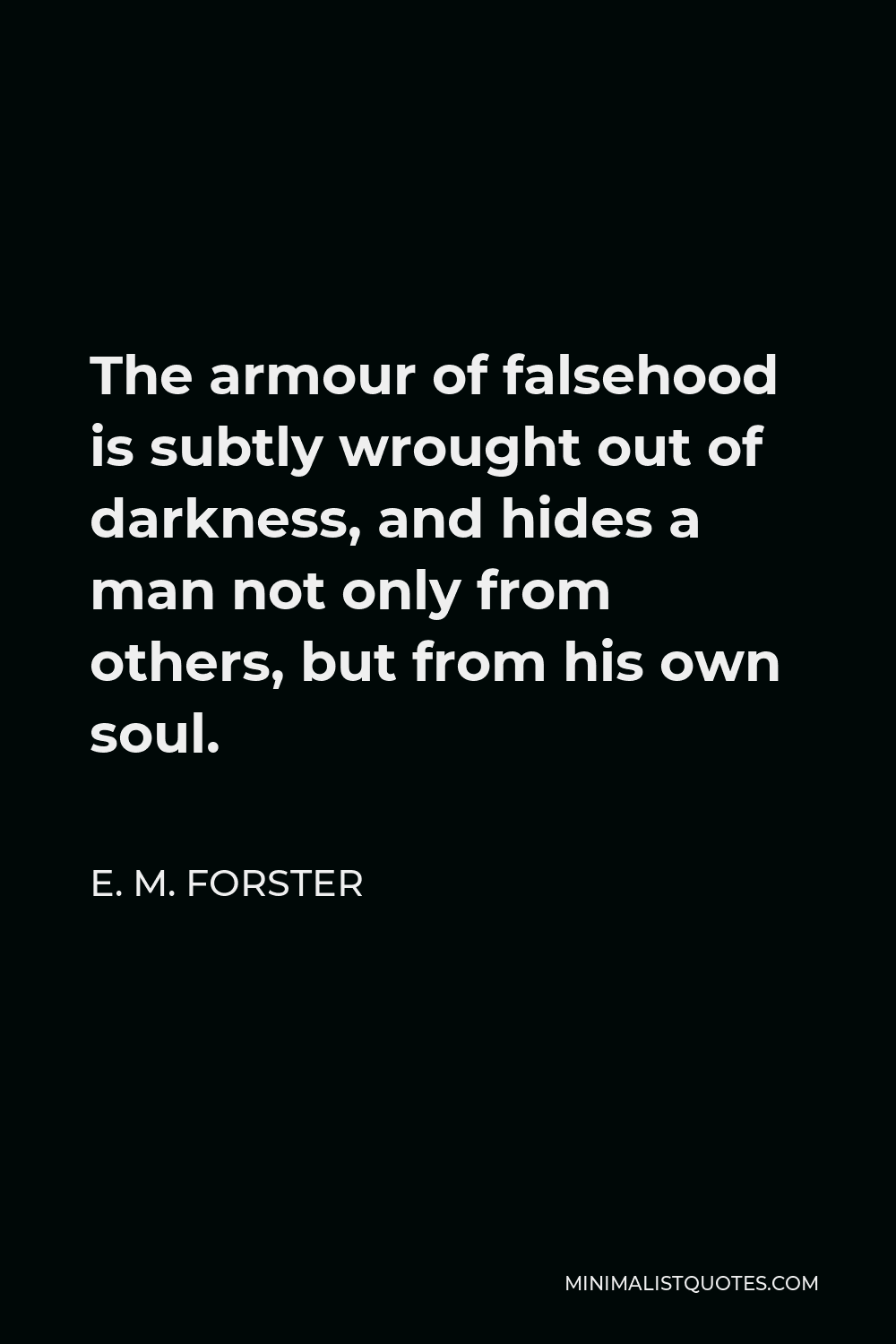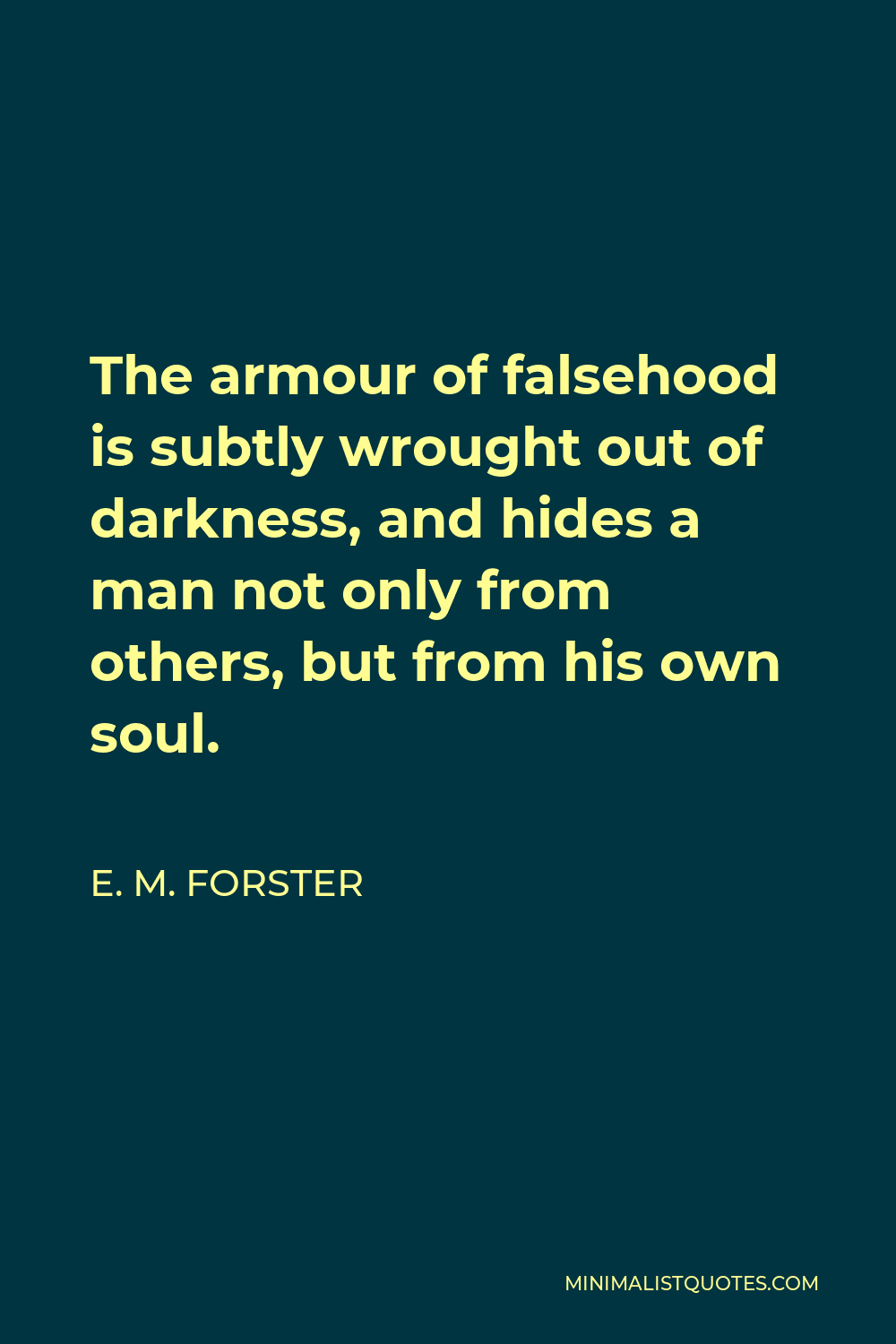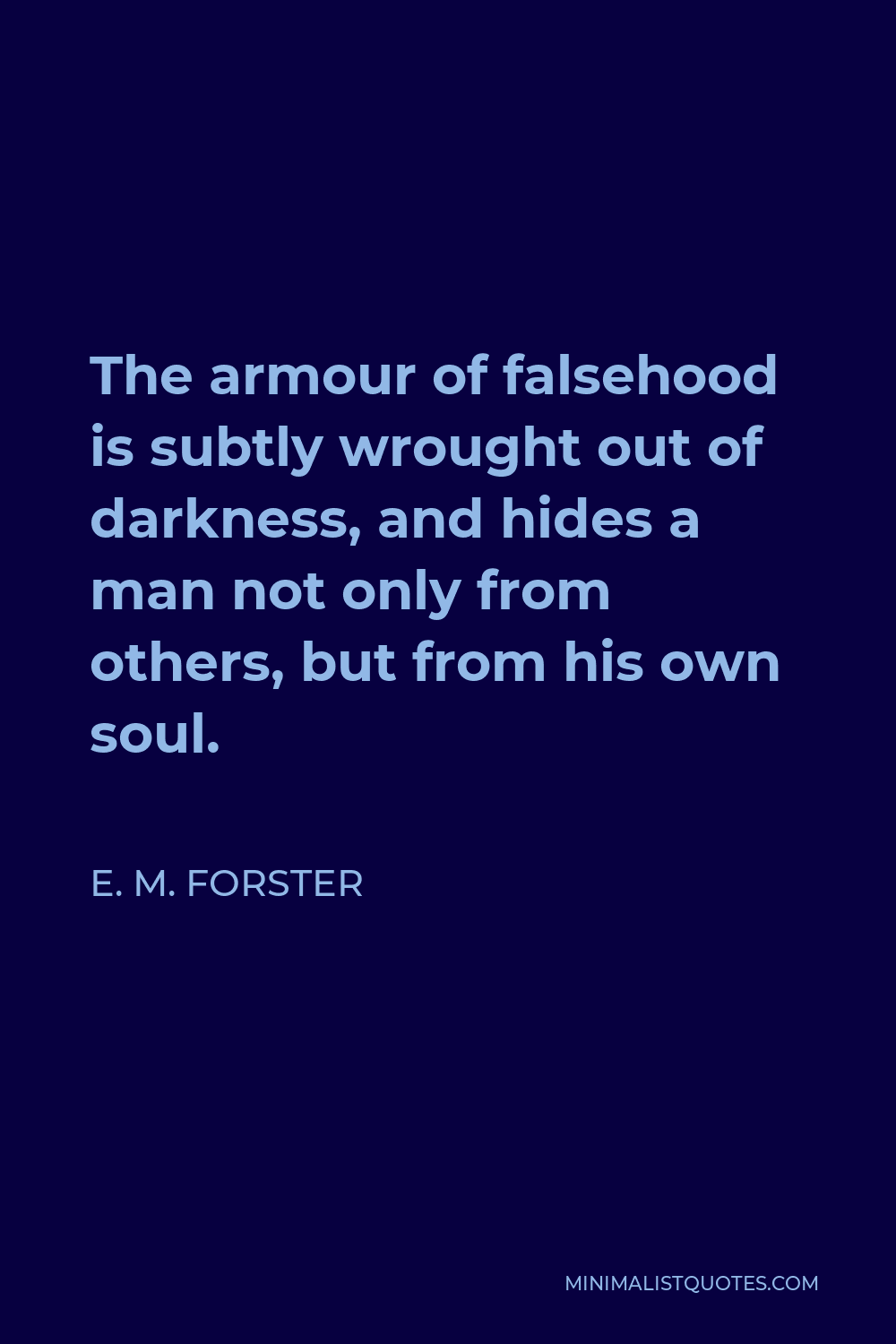The final test for a novel will be our affection for it, as it is the test of our friends, and of anything else which we cannot define.
E. M. FORSTERThe armour of falsehood is subtly wrought out of darkness, and hides a man not only from others, but from his own soul.
More E. M. Forster Quotes
-





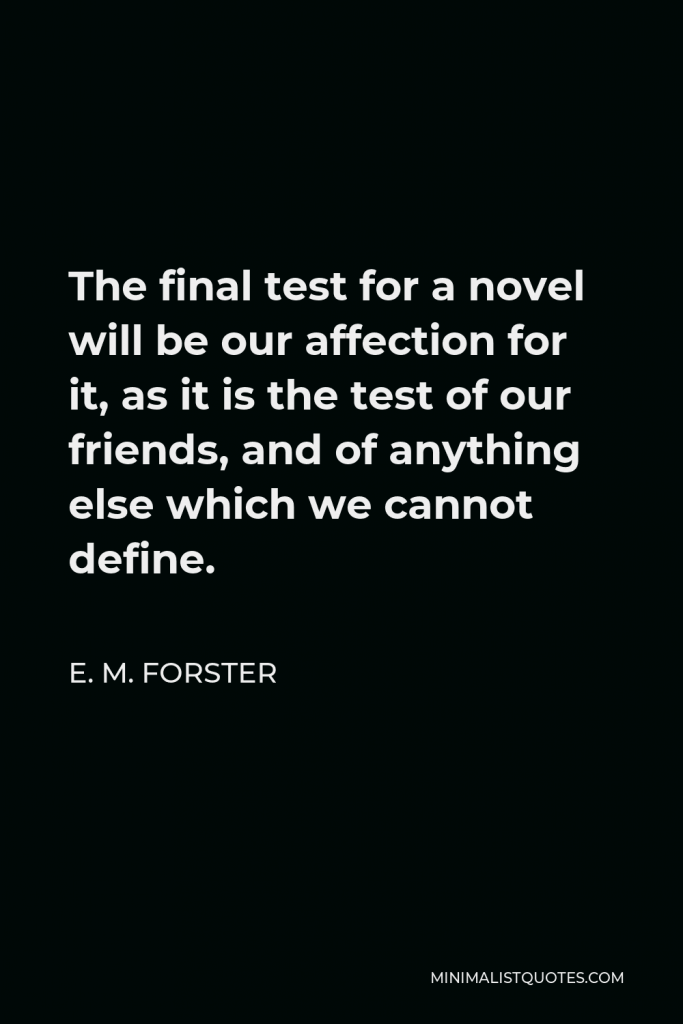

-





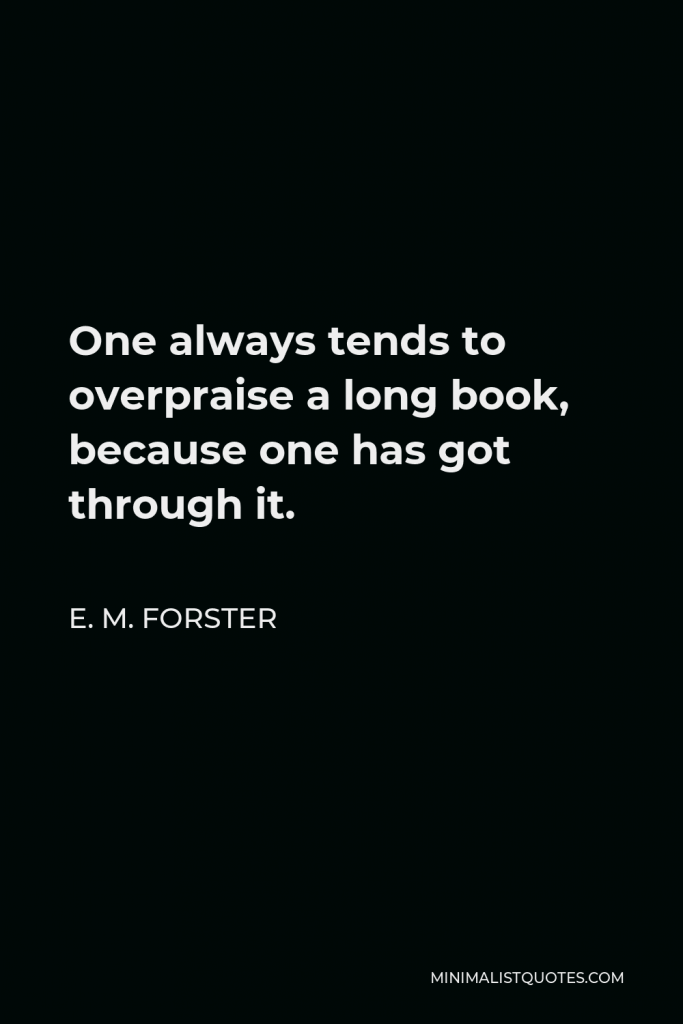

One always tends to overpraise a long book, because one has got through it.
E. M. FORSTER -





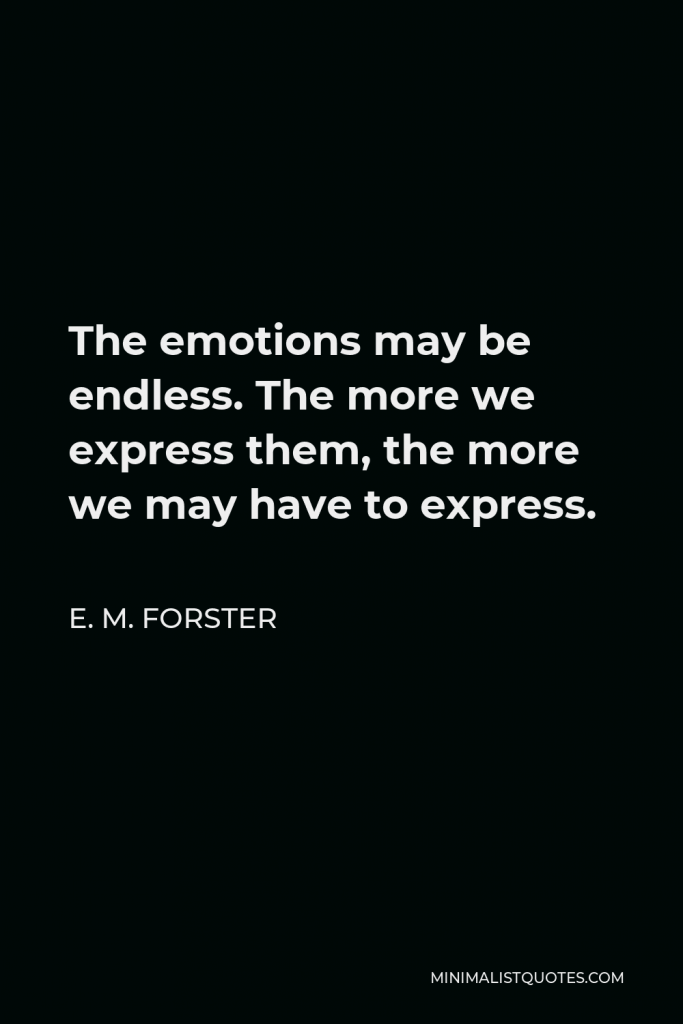

The emotions may be endless. The more we express them, the more we may have to express.
E. M. FORSTER -





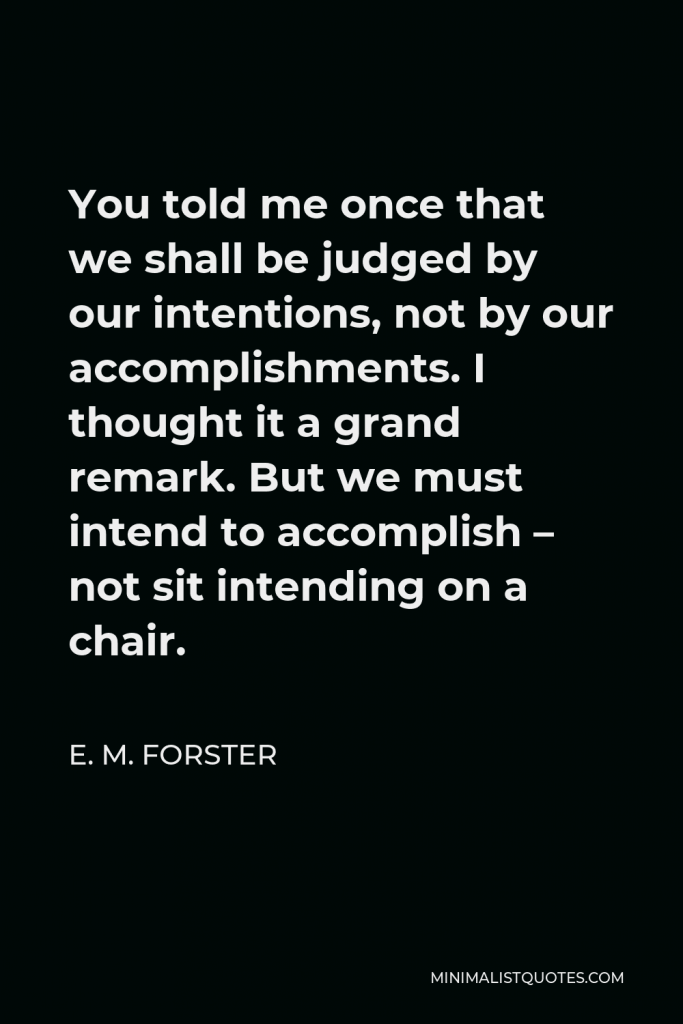

You told me once that we shall be judged by our intentions, not by our accomplishments. I thought it a grand remark. But we must intend to accomplish – not sit intending on a chair.
E. M. FORSTER -







The historian records, but the novelist creates.
E. M. FORSTER -





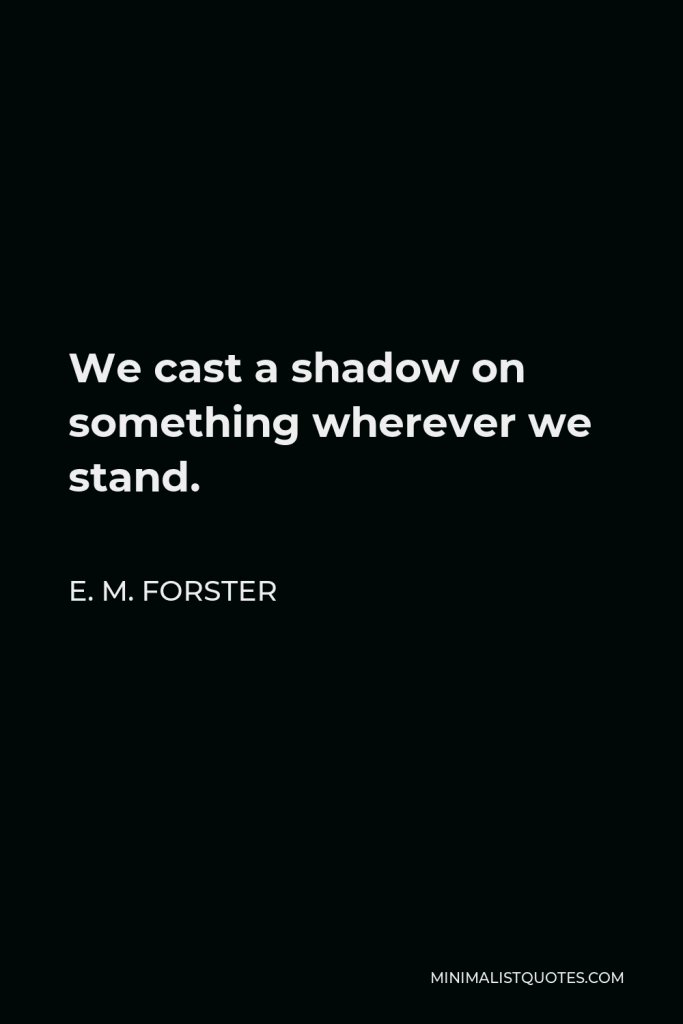

We cast a shadow on something wherever we stand.
E. M. FORSTER -







I think you’re beautiful, the only beautiful person I’ve ever seen. I love your voice and everything to do with you, down to your clothes or the room you are sitting in. I adore you.
E. M. FORSTER -





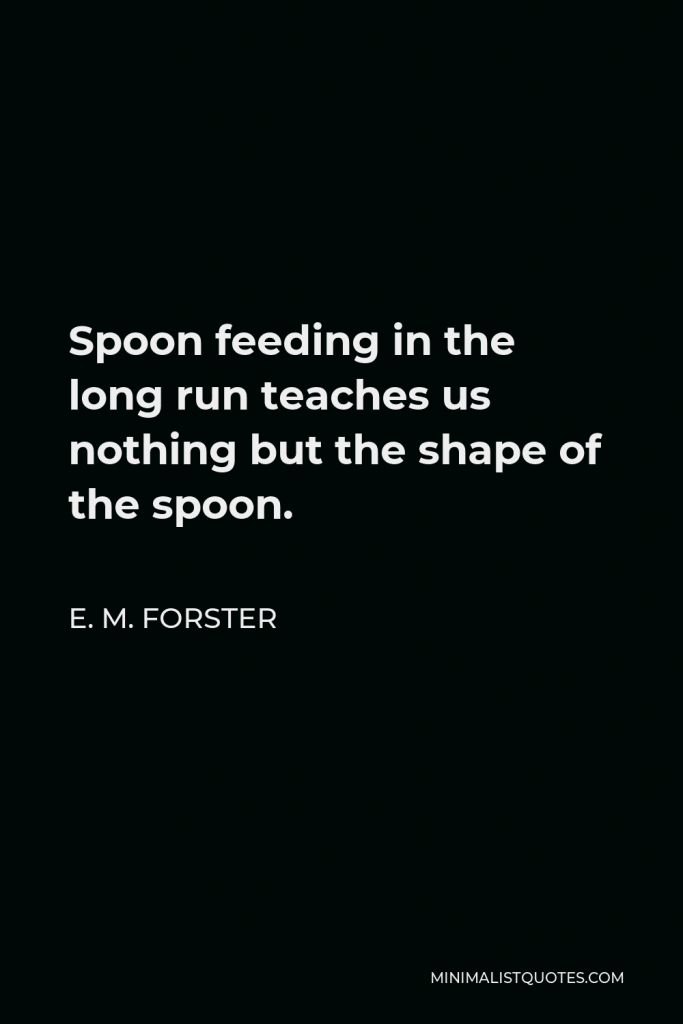

Spoon feeding in the long run teaches us nothing but the shape of the spoon.
E. M. FORSTER -





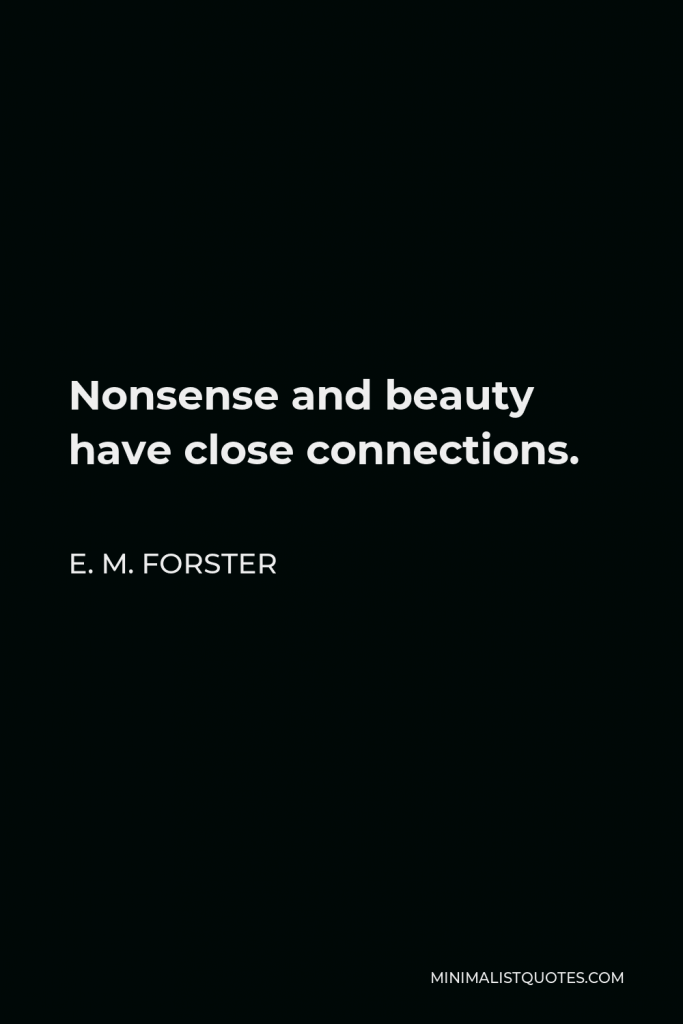

Nonsense and beauty have close connections.
E. M. FORSTER -





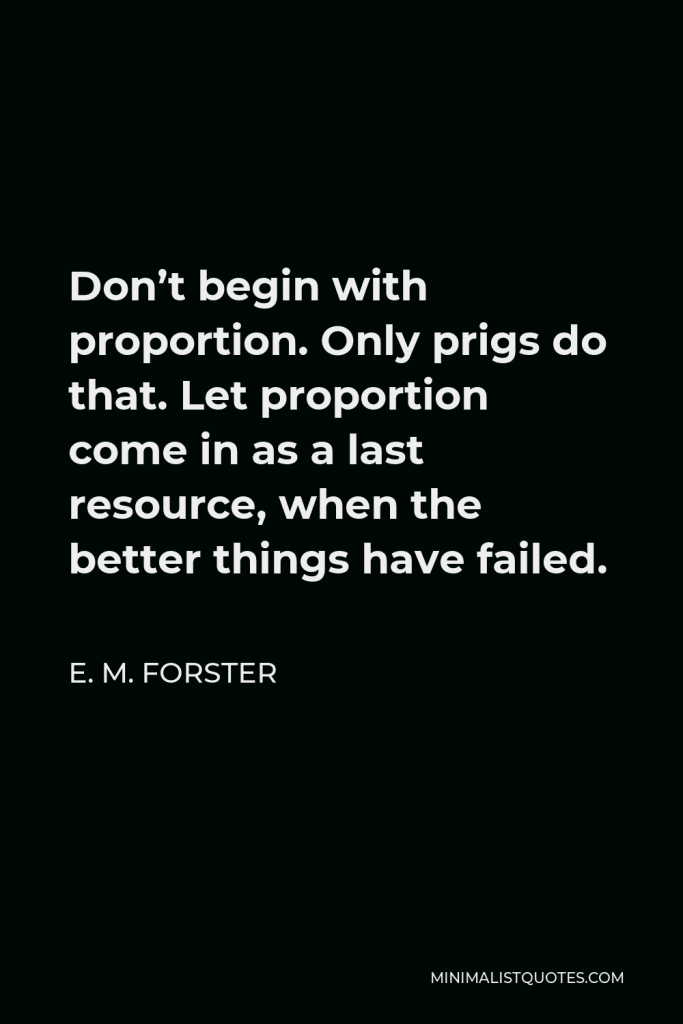

Don’t begin with proportion. Only prigs do that. Let proportion come in as a last resource, when the better things have failed.
E. M. FORSTER -







Adventures do occur, but not punctually.
E. M. FORSTER -





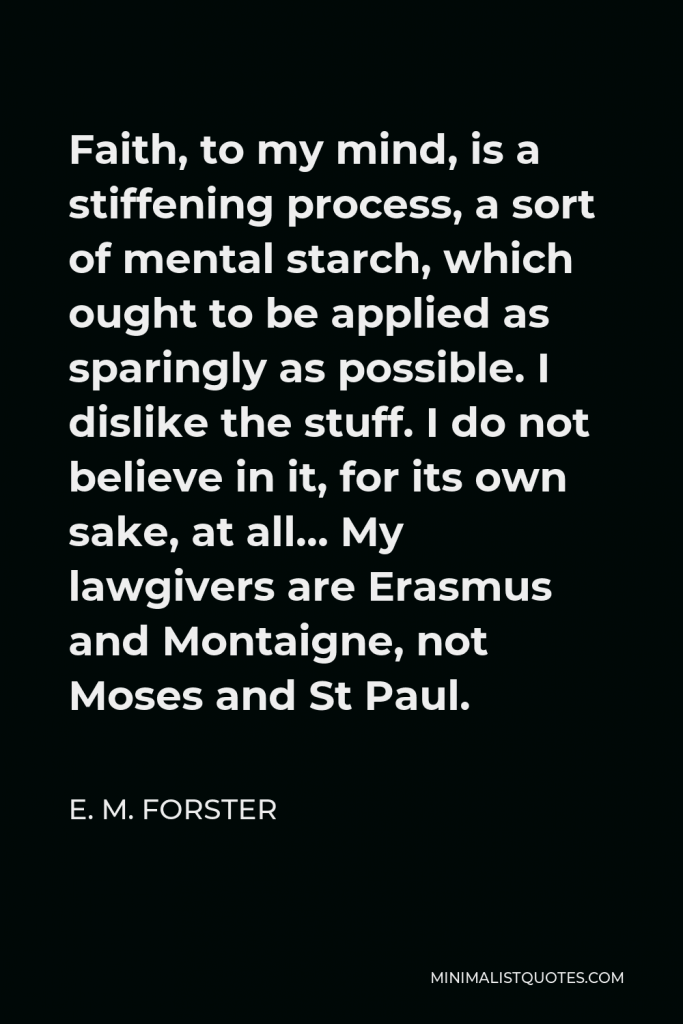

Faith, to my mind, is a stiffening process, a sort of mental starch, which ought to be applied as sparingly as possible. I dislike the stuff. I do not believe in it, for its own sake, at all… My lawgivers are Erasmus and Montaigne, not Moses and St Paul.
E. M. FORSTER -





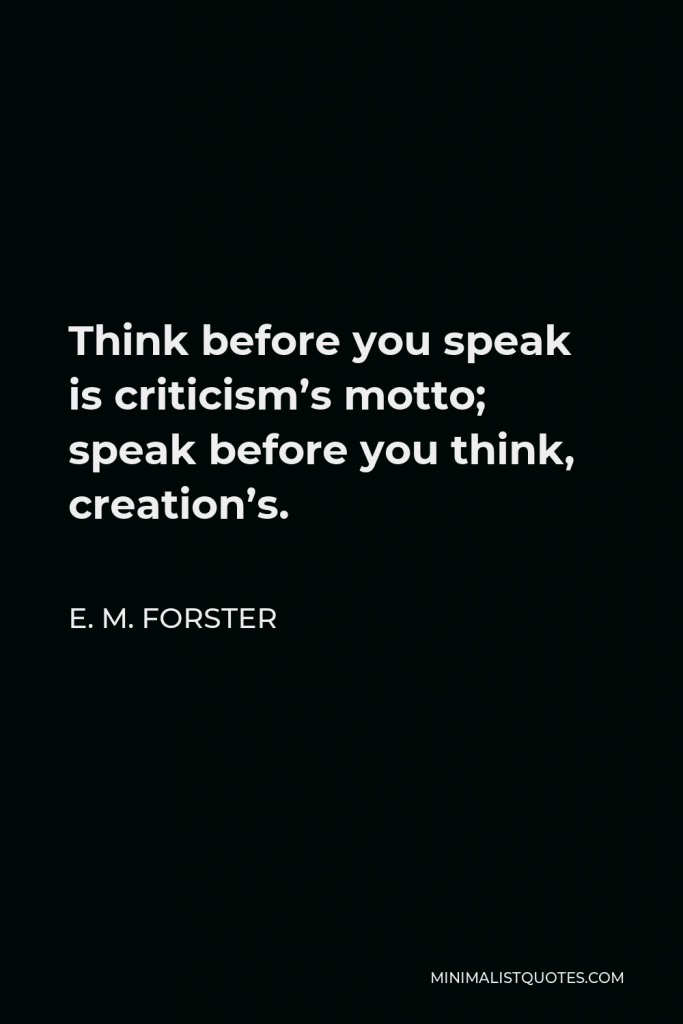

Think before you speak is criticism’s motto; speak before you think, creation’s.
E. M. FORSTER -





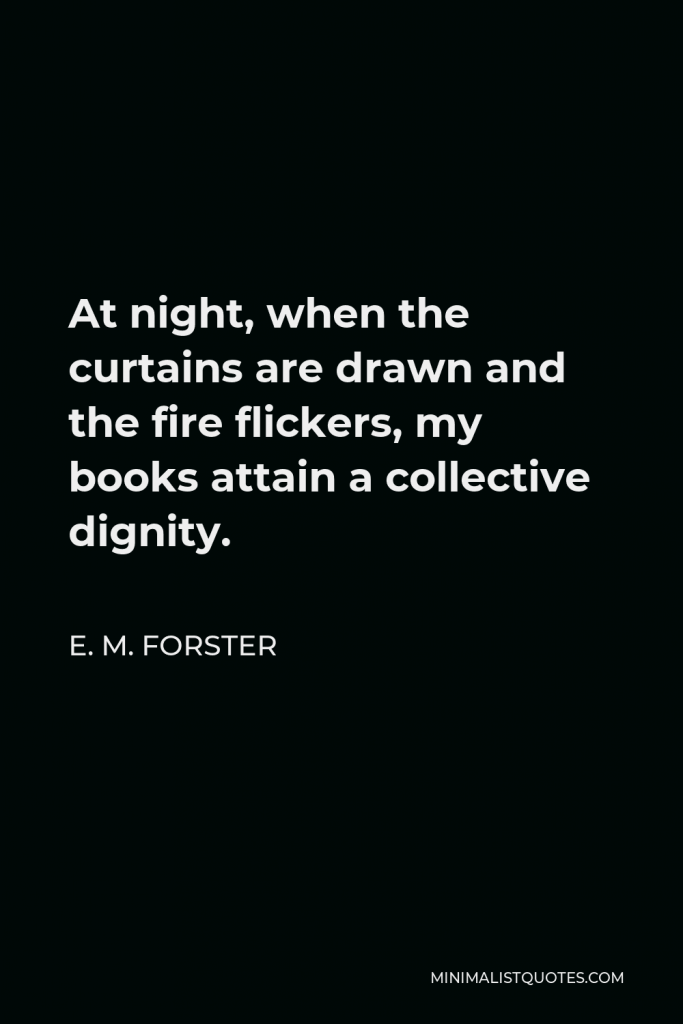

At night, when the curtains are drawn and the fire flickers, my books attain a collective dignity.
E. M. FORSTER -







Let yourself go. Pull out from the depths those thoughts that you do not understand, and spread them out in the sunlight and know the meaning of them.
E. M. FORSTER -





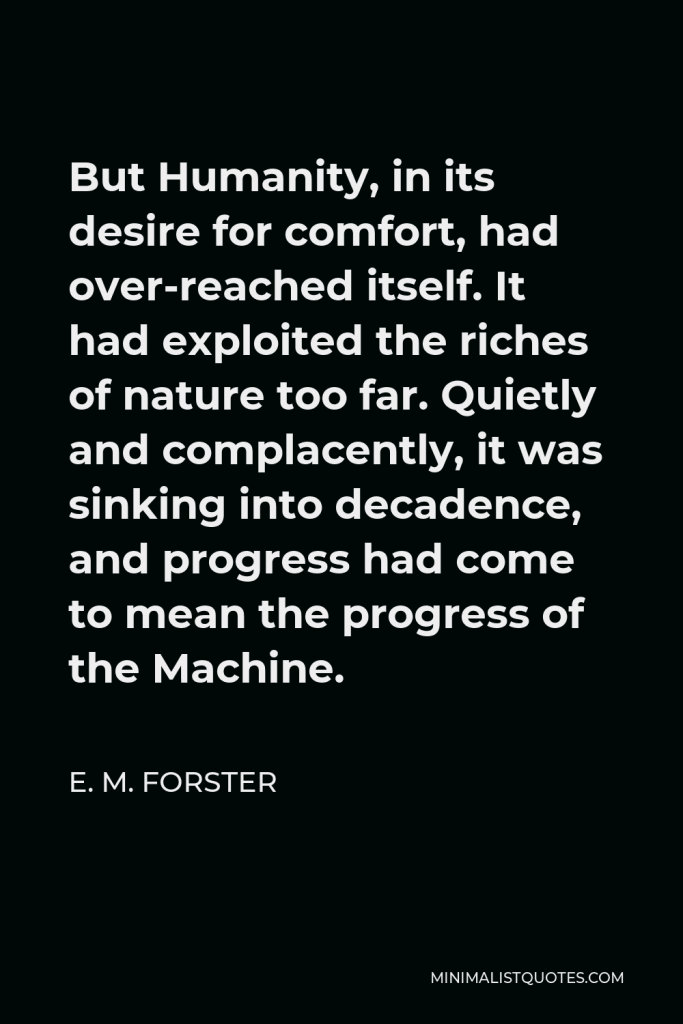

But Humanity, in its desire for comfort, had over-reached itself. It had exploited the riches of nature too far. Quietly and complacently, it was sinking into decadence, and progress had come to mean the progress of the Machine.
E. M. FORSTER
